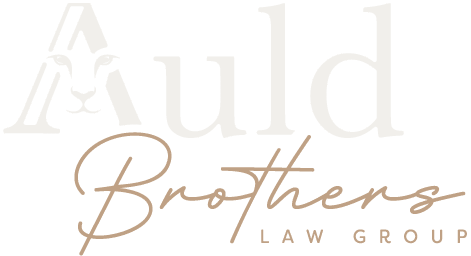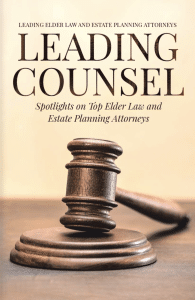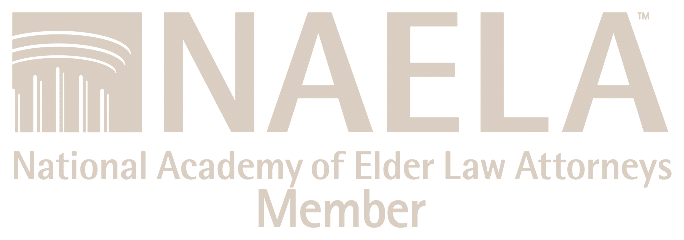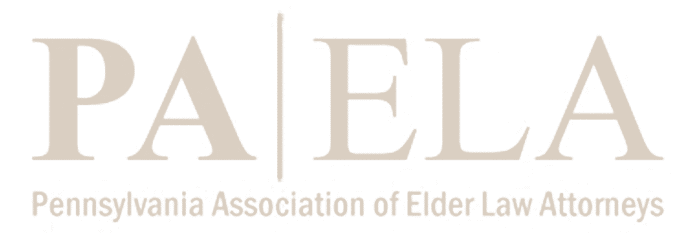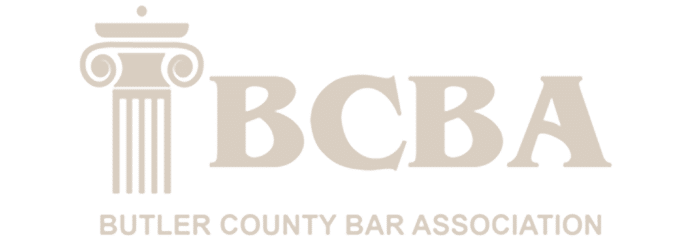FAQs
About Us
Frequently Asked Questions
Some clients come to us when they need immediate help, and some are looking to prepare for the future. During that time, we do our best to help educate them on their legal options. Our goal is to provide our clients with all the necessary information so they can make the best and most knowledgeable choices for their situation.
We are experienced and knowledgeable about all phases of Estate Planning, Estate Administration, the Probate process, and other areas (review our Areas of Expertise section for more). Below are some frequently asked questions about the Estate Planning process.
If you have a question regarding your specific situation, please contact us for a free consultation and legal advice.

How long does a typical Estate Administration last, from beginning to end?
An Estate has nine months from the date of passing to pay the total amount due and draft the Return. However, all Estates that can make a prepayment of the expected amount due and can save 5% of what is owed. $100 in Inheritance Tax is then only $95.00.
The Return itself doesn’t need to be filed, when a prepayment is made. Think of it this way; PA is happy to get tax that’s due as soon as possible so they are willing to wait for the REV 1500 Inheritance Tax Return. You have to make an educated guess as to that amount.
- Draft and file the Inheritance Tax Return making sure the taxes are paid.
- The Return is received by the PA Inheritance Tax Return Dept.
- They are required to review the Return and submit their response as to its accuracy within six months. It will indicate one of the following;
- You paid the total amount.
- If you overpaid, the Estate will receive a refund.
If you underpaid, you are penalized by day based on the amount that is due. Once the Inheritance Tax Return specifics are sorted, that is the signal to the Estate’s Attorney to close out the Estate on behalf of the Executor. On average, based on the complexity of the Estate, it can take an average of 12-18 months for a simpler Estate. None of that seems long, right? However, the legal stages and information needed, decisions that need to be made, accounts that need to be distributed and closed, etc., is the real marathon.
What are the stages of an Estate?
- Drafting and Filing the Petition for Probate, either with a Will or intestate, due to lack of a Will.
- Drafting and filing a 10.5 Certification, completed by the attorney indicating all the beneficiaries have each received 10.5 Notices and that they are named beneficiaries within the Will or that they are to inherit, pursuant to the intestate laws of Pennsylvania.
- Formally published in two forms of legal advertising indicating an individual has passed.
- The Estate has been opened, for instance, in Allegheny County, which is the Pittsburgh Post-Gazette or the Pittsburgh Legal Journal.
- This notice informs all creditors that if they are owed a debt, they are to notify the Estate and/or file a Claim with the County’s Dept. of Court Records in Allegheny County. It is not an alternative to an obituary.
- Obtaining all the asset information required and gathering all the debts.
- Practical things like closing utility accounts, forwarding the mail, paying, and closing credit card accounts, letting various agencies know of the person’s passing, and most likely going through a lot of paperwork and making a lot of calls for all of that to be accomplished.
- Draft and file the PA Inheritance Tax Return.
- Draft and file a Federal Inheritance Tax Return if the individual has amassed significant assets, ranging in the millions.
- With the county, drafting and filing the Inventory listing the value of the probate assets, adding those values up, and paying the county what they are due, based on amount ranges.
- Closing an estate either by Drafting a Petition for Distribution, which includes an Accounting of what was done to complete the Estate to obtain formal court approval by way of a Court Order, or by drafting a Family Settlement Agreement which does not need to be recorded, as it’s more informal.
- Filing a Status Report, indicating there are no outstanding matters that need to be completed.
What are the tax brackets?
- Non-profit Charities 0%
- Spouses 0%
- Children 4.5%
- Grandchildren and Great Grandchildren 4.5%
- Siblings, nieces or nephews, aunts, or uncles 12%
What are Probate Assets vs. Non-Probate Assets?
Typical Probate Assets are:
- Bank accounts
- Real Estate in PA
- Vehicles
- Collectibles like expensive watch collections
- Death benefits
- Business interests
Typical Non-Probate Assets are:
- Joint accounts
- Joint interests in real estate in PA or out-of-state
- Life Insurance
Probate assets are divided pursuant to your Will. In most instances, all probate assets are liquidated or sold and the proceeds are deposited into the estate checking account, which is used to pay all debts, costs and fees of the estate. Then, the funds are provided to the beneficiaries.
Some probate assets are financial interests where an individual has previously named a beneficiary, making it TOD (Transfer on Death), ITF (In Trust For), FBO (For the Benefit Of). Acronyms which say, I’ve named person “X” to get this asset. Therefore, you do not need to look to the directives in a Will or PA’s Rules should you lack a Will, as to whom the funds are to be distributed to. It very well could be someone that’s not named in your Will.
Are Probate Assets and Non-Probate Assets related in value to what Inheritance Tax is due?
No. Classifying Probate vs. Non-Probate is a classification of each asset.
Is it true that I can avoid Probating a Will?
Yes and no. If you are the first spouse to pass away and all things are titled correctly to avoid Probate then it usually results in not having to Probate. Things like cars and rainy-day funds need to be titled jointly, as well as all bank accounts and real estate. If not, Probate is required.
No tax is due for the surviving spouse, but you must pay all the costs and fees and go through the process.
The real answer is typically no unless you want to give away all your assets within a certain period of time, prior to your passing losing control and the ability to have access to an asset of financial value.
Do I need a Durable Healthcare Power-of-Attorney & Living Will, as well as a Durable Financial Power-of-Attorney?
Yes. Simply put, everyone will need or want help during their lifetime. Both documents do much more than you realize.
For example, you need to call and get a prescription refill for your loved one. You may need to complete an application form for assisted living or skilled nursing. Next, an invoice needs to be challenged, or tax returns need to be signed by you and filed.
Practical every day, month, and yearly logistics is the real work. Should you not obtain one and someone needs to act on your behalf, a Guardianship may need to be appointed.
Do I need a Will? Can I get a simple one?
Do you think life is simple, with family circumstances, children and their circumstances, or parents’ circumstances? Have you worked different jobs or amassed varying assets with their own rules? How are you planning for your future, at retirement, and should health issues arise?
Unfortunately, health is a variable no one can predict. While drafting your Will, a lot of things are considered and some hard questions need to be asked and then answered.
What if I don't have a Will when I pass?
It depends. Do you have assets that need to be transferred or divided in only your name to your beneficiaries? Do you need to sell a residence only in your name? If you have nothing of value then you may not, but the majority of individuals do.
Should any of this apply to you and you do not have a Will, the intestacy laws of the Commonwealth of Pennsylvania will dictate the division of your assets that do not have named beneficiaries. Then, an Estate Administration will need to occur.
Do I need a Trust?
Do you have a loved one with a disability who may also be receiving government benefits or addiction issues, or are you leaving anything to minors? Are you attempting to avoid as much PA Inheritance Tax that is due or Federal Inheritance Tax? What are your goals, and is it financially prudent to create one, and what are those implications?
The creation of a Trust is a much more involved conversation with your attorney.
How can I avoid PA Inheritance Tax?
This is a specific question, and the answer is specific to your situation while you’re living and then your circumstances when you pass. It can include reviewing the retitling of assets, like bank accounts, ownership of real estate, car titles, creation of a funeral insurance policy, etc.
I own a business. What are the income, inheritance tax, and business implications themselves?
For income taxes, be mindful and prepared with your accountant to understand the ramifications. Looking down the road, when you pass away, there will be inheritance tax implications for your family. Is the business being sold? Is it being passed on to a family member?
A value is placed on the business that is taxed. The business could also be closed. In carrying on the business, it needs to be set up for future success. You have an action plan in place, and it is detailed for your company.
Will Medicaid take my money so they can pay for my nursing home care costs?
No. Medicaid won’t take your money if you enter a nursing home and you are later unable to pay. Under an Estate Recovery program, Medicaid can claim reimbursement for the amount paid during your lifetime (after your passing), but only from your Probate Assets. Non-Probate Assets and assets of a surviving spouse are not subject to the claim. However, for a residence a claim will be made when the surviving spouse passes away.
When is the best time to review a Will or Estate Plan?
- Family circumstances change like having children
- You or a family member is moving to a long-term or nursing home care
- Financial circumstances change
- You want to change the provisions in the Will or your overall estate plan
- Relevant estate or tax laws change
Can I create a Trust without listing any money or property?
Yes. This is called an Unfunded trust. You can create and put on “standby” to add your assets at a later date.

Learn How We Can Help You
We are ready to listen and provide you with a free consultation, legal advice and answer your questions. Contact us today!
Send a Message
Contact Us to Get Started
Complete our online form so we can help you with your estate planning process.
We are happy to provide a free, 30-minute consultation, with legal advice and answer any questions you may have about your current situation. Our goal is to provide you with clear, straightforward information to help you understand what you need.
